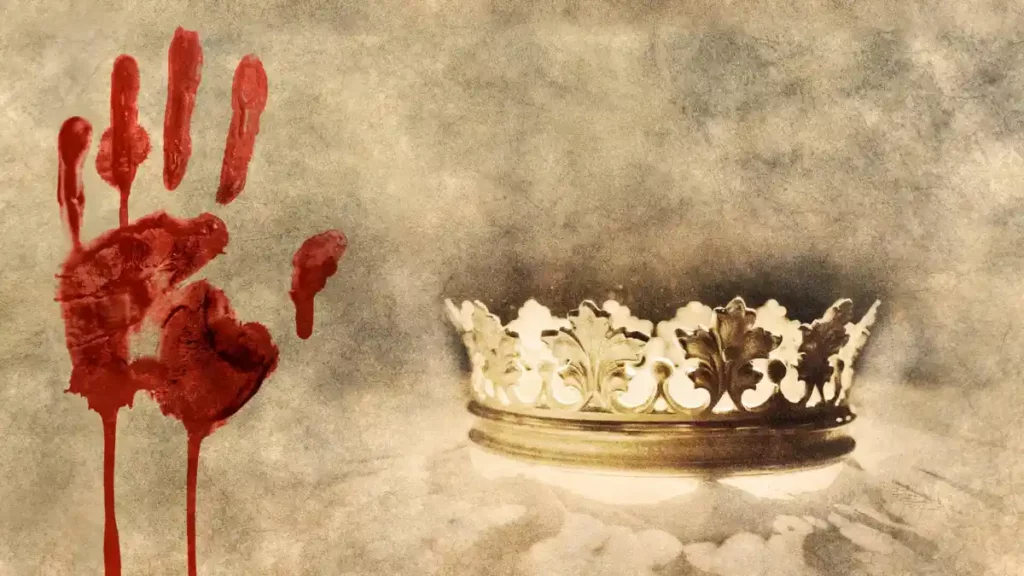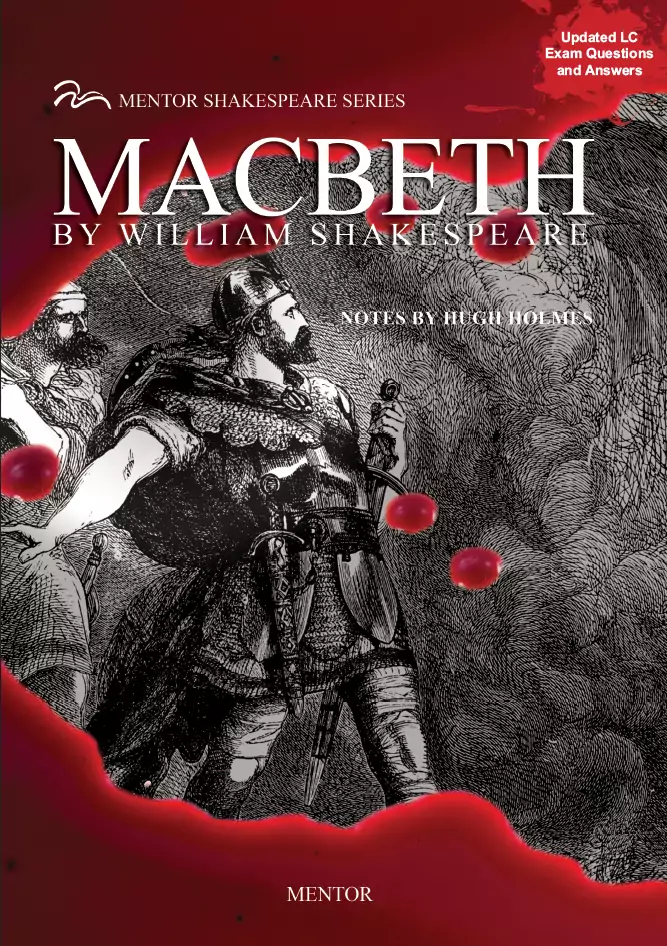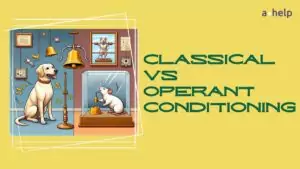Shakespeare’s “Macbeth,” written in the early 17th century, stands as a timeless masterpiece that delves into the profound and often debated theme of fate in Macbeth and topic of free will. Set in medieval Scotland, the play tells the story of Macbeth, a nobleman whose life takes a dark turn following a prophecy by three witches. This prophecy, coupled with his ambition and the persuasive influence of his wife, Lady Macbeth, sets him on a tragic path of murder, guilt, and paranoia. Shakespeare weaves a complex narrative where supernatural elements – such as the prophecy of the Weird Sisters – intersect with the human actions and decisions of Macbeth and other characters. This interplay raises poignant questions about whether our lives are governed by destiny, or whether we have the autonomy to shape our own paths.

✅ AI Essay Writer ✅ AI Detector ✅ Plagchecker ✅ Paraphraser
✅ Summarizer ✅ Citation Generator
In this essay, we will explore in detail how Shakespeare portrays the themes of fate vs free will Macbeth. We will dissect key scenes that serve as turning points in the narrative, highlighting how these moments underscore the tension between predetermined destiny and individual choice. We will also analyze the roles of pivotal characters, such as Macbeth, Lady Macbeth, and Banquo, examining how their responses to the prophecies reflect their perspectives on fate and free will. Furthermore, this exploration will extend to understanding how these themes not only drive the plot forward but also profoundly impact the development and ultimate fate of the characters.
Through this analysis, we aim to gain a deeper understanding of how “Macbeth” navigates the intricate dance between fate and free will, offering insights into the broader implications of these themes in human life. This exploration will reveal the timeless relevance of Shakespeare’s work and its enduring ability to engage audiences in a reflection on some of life’s most fundamental questions.
Portrayal of Fate and Free Will
From the outset, “Macbeth” positions fate as a powerful force, primarily represented through the Weird Sisters. Their prophetic declarations to Macbeth and Banquo introduce the idea of a predetermined future, suggesting that fate has a role in shaping events. However, Shakespeare does not present fate as a singular, deterministic force. Instead, he weaves in the element of free will, embodied in Macbeth’s and Lady Macbeth’s decisions and actions. The characters’ responses to the prophecies are crucial, highlighting that while fate may propose a path, it is human action that ultimately forges the journey.
The Influence of Fate and Free Will on the Plot and Characters
The intricate dance of fate in Macbeth and free will depicted by Shakespeer in his play goes beyond mere thematic exploration; it is the very engine that propels the narrative and shapes its characters. The witches’ prophecies, cryptic and foreboding, set in motion the gears of the plot, foretelling Macbeth’s rise to power. However, it is not fate alone that guides the course of events; rather, it is the response of Macbeth and Lady Macbeth to these prophecies that truly steers the story. Their decisions, driven by ambition and a lust for power, are acts of free will that catalyze the tragic unfolding of events.
Macbeth’s transformation from a loyal and honorable nobleman to a tyrannical ruler encapsulates the complex interplay of fate and choice. His initial reluctance to act on the witches’ prophecy is swiftly overcome by his and his wife’s deliberate and conscious decisions to murder King Duncan. This pivotal act of regicide is a clear exercise of free will, a deliberate step that aligns with the fated kingship but at a terrible moral cost. The subsequent reign of Macbeth is marked by increasing paranoia and tyrannical behavior, suggesting that once the natural order is disrupted by free will, chaos and guilt become inevitable companions.
Lady Macbeth, equally complicit in the unraveling of their fated fortunes, exhibits the psychological turmoil of their choices. Her initial steely resolve and manipulation of Macbeth to commit the murder gradually give way to guilt and madness. Her descent into insanity, culminating in her tragic death, is a stark representation of the psychological burden of exercising free will against ethical principles.
The play also delves into the futility of trying to manipulate or escape one’s destiny. Macbeth’s murder of Banquo, prompted by the fear of losing his power, is a futile attempt to challenge fate. Banquo’s ghost at the banquet is a haunting reminder that one cannot easily evade the consequences of their actions, even if they are predestined. Furthermore, Macbeth’s attempt to thwart the prophecy concerning Macduff leads to the massacre of Macduff’s family, a horrific act that only hastens Macbeth’s downfall. This sequence of events underscores the destructive nature of attempting to control or divert fate through morally reprehensible actions.
In a broader sense, “Macbeth” is a profound commentary on the human condition, grappling with the eternal questions of destiny and agency. The characters, especially Macbeth and Lady Macbeth become embodiments of the struggle between predetermined paths and the choices that individuals make and we will dive into that below.
Generally speaking, through “Macbeth,” Shakespeare masterfully illustrates that while fate may lay the groundwork, it is ultimately free will and personal choice that shape our lives, often with irreversible and tragic consequences.
Key Scenes in the Depiction of Fate and Free Will
Several scenes in “Macbeth” are pivotal to understanding the interplay of fate and free will. The opening scene, where the Weird Sisters reveal their prophecies, sets the stage for this dynamic. Here, fate presents itself, yet it is Macbeth’s reaction to the prophecy of becoming king that sparks the chain of events leading to his ascent and downfall.

Another crucial scene is Macbeth’s soliloquy in Act 1, Scene 7, where he contemplates the moral implications of murdering King Duncan. This moment of introspection underscores the role of personal choice, indicating that despite the prophecy, Macbeth has the agency to make his own decisions.
Furthermore, the banquet scene in Act 3, where Macbeth sees Banquo’s ghost, is significant in the context of free will. Macbeth’s guilt manifests as a hallucination, a result of his conscious choice to murder. This scene illustrates the internal conflict and the psychological repercussions of exercising free will against moral judgment.
Characters Caught in the Conflict of Fate and Free Will
In the narrative of “Macbeth,” characters are continually caught in the crossfire between fate vs free will in Macbeth, each responding uniquely to this conflict. Macbeth, the central figure of the play, epitomizes this struggle. Initially portrayed as a brave and noble soldier, Macbeth’s encounter with the Weird Sisters ignites a latent ambition within him. Their prophecy plants a seed of future possibilities in his mind:
“All hail, Macbeth, that shalt be king hereafter!”.
(Act 1, Scene 3)
Yet, it is not fate alone that seals Macbeth’s destiny. His own decisions, significantly influenced by Lady Macbeth’s persuasive words propel him down a dark path,
“Art not without ambition, but without the illness should attend it”.
(Act 1, Scene 5)
His exercise of free will, choosing to murder King Duncan, marks the beginning of his moral decline and paves the way to his tragic end. Macbeth’s journey thus becomes a cautionary tale about the perils of letting unchecked ambition and manipulable free will override ethical judgment.
Lady Macbeth, a pivotal character in this thematic exploration, undergoes a dramatic transformation. Initially, she emerges as a powerful figure, inciting Macbeth to seize his destiny. Her next famous lines reflect her manipulative nature and determination
“Look like the innocent flower, but be the serpent under’t”.
(Act 1, Scene 5)
However, as the play progresses, the weight of their choices begins to haunt her. The psychological burden of their free-willed actions manifests in her descent into madness, symbolized by her obsessive hand-washing and her lamentation,
“Out, damned spot! Out, I say!”
(Act 5, Scene 1)
Her tragic fate illustrates the profound psychological cost of aggressively pursuing a destiny that requires moral compromise.
In contrast, Banquo serves as a moral foil to Macbeth. He too hears the witches’ prophecies, including the promise of a royal lineage,
“Thou shalt get kings, though thou be none” .
(Act 1, Scene 3)
However, Banquo’s reaction is markedly different. He chooses a more passive stance, allowing fate to take its course without resorting to manipulation or violence. This approach sets him apart from Macbeth, underscoring the play’s exploration of free will versus predestined fate. Banquo’s character challenges the notion that one must actively shape destiny, suggesting that ethical integrity and a hands-off approach to fate can coexist.
Through these characters, Shakespeare intricately weaves a narrative that not only entertains but also provokes deep contemplation about the forces of fate and the power of personal choice. Each character’s journey through this thematic landscape adds layers of complexity to the play’s exploration of these timeless concepts.
Conclusion
In conclusion, “Macbeth” presents a nuanced exploration of fate and free will, suggesting that while our lives may be influenced by predetermined paths, it is our actions and choices that ultimately define our journey. Shakespeare uses Macbeth’s tragic story to illustrate the complexity of these concepts and their profound impact on human behavior and psychology. The interplay of fate and free will in “Macbeth” not only drives the plot but also serves as a timeless reflection on the human condition, reminding us of the power of personal choice in shaping our destinies.
FAQ
Follow us on Reddit for more insights and updates.







Comments (0)
Welcome to A*Help comments!
We’re all about debate and discussion at A*Help.
We value the diverse opinions of users, so you may find points of view that you don’t agree with. And that’s cool. However, there are certain things we’re not OK with: attempts to manipulate our data in any way, for example, or the posting of discriminative, offensive, hateful, or disparaging material.